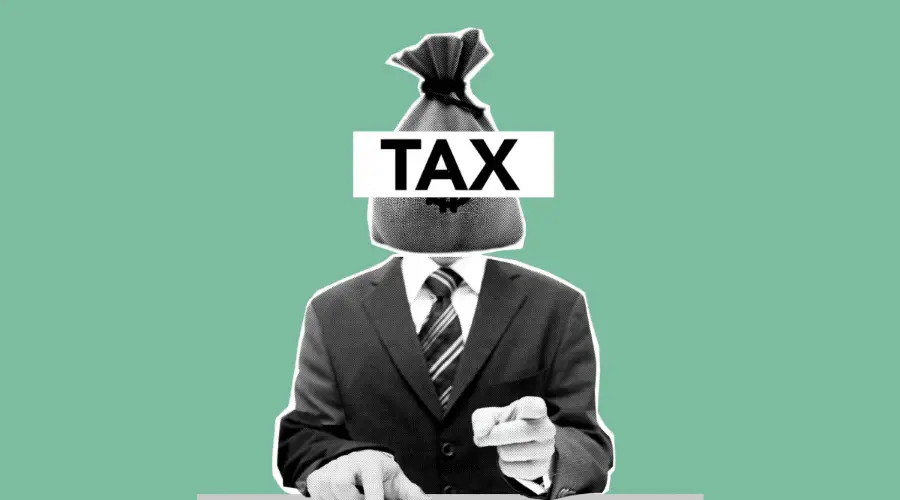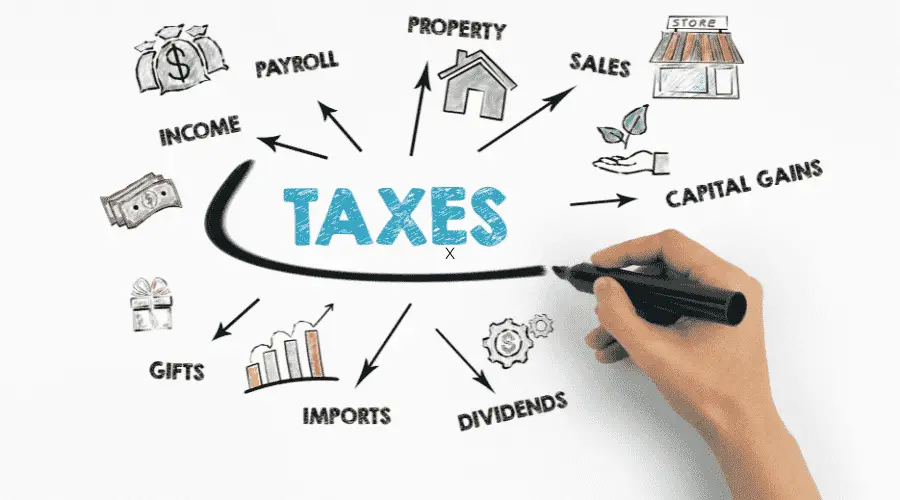The CTA tax qualification comprises 4 core exams across three levels and 3 additional one-hour-long computer-based assessments (CBEs) and is the go-to tax qualification in the UK. Before starting this qualification, you are probably wanting to get an idea of just how difficult the exams are?
The CTA exams are difficult to pass as shown by the very low pass rates on all of the exam papers. The exams are sufficiently difficult that it’s recommended that candidates do a separate qualification beforehand. Despite this, the exams are passable for candidates who put in the required effort.
Prior to starting the CTA qualification, candidates should make sure they are absolutely clear on what they are signing themselves up for and the difficult exams they will have to contend with. This post explains the difficulty of these exams, how they can be made easier by undertaking separate qualifications and what a CTA qualification could lead to.
How hard are the CTA qualification exams?
The CTA qualification is a top-level tax qualification which carries a lot of prestige in the industry. Employers and clients know what they are getting with a CTA-qualified tax professional and that’s someone highly trained with enough intellect and resilience to pass a number of difficult exams.
As shown below, the percentage required to pass the core exams is 50% for the awareness paper, the two advanced technical papers and the application and professional skills paper. The pass mark for the three 1-hour long, computer-based exams (CBEs) is 60%.
It should give candidates confidence that they only need to achieve 50% or 60% of the total marks on the exam papers in order to pass which is much less than is required on other qualifications.
| Level | Modules or exam papers | Exam length / style | Pass mark (% required to pass the exam) |
| 1 – Awareness Paper | Choose 3 modules from: 1. Taxation of Individuals 2. Inheritance Tax, Trusts and Estates 3. Taxation of Unincorporated Businesses 4. VAT including Stamp Taxes 5. Corporation Tax | 3 hours 15 minutes | 50% (no less than 35% on any of the 3 chosen modules) |
| 2- Advanced Technical papers | Choose 2 papers from: 1. Taxation of Individuals 2. Inheritance Tax, Trusts and Estates 3. Taxation of Owner-Managed Businesses 4. Domestic Indirect Taxation 5. Cross-border Indirect Taxation 6. Taxation of Major Corporates 7. Human Capital Taxes *note – must be different than modules chosen in Awareness paper* | 3.5 hours | 50% |
| 3 – Application and Professional Skills paper (Case study based) | Chose 1 paper from: 1. Taxation of Individuals 2. Inheritance Tax, Trusts and Estates 3. Taxation of Owner-Managed Businesses 4. VAT and Other Indirect Taxes 5. Taxation of Larger Companies and Groups 6. Human Capital Taxes | 3.5 hours written | 50% |
| 4 – Computer-based Exam (CBE) | Law | 1 hour, multiple choice | 60% |
| 4 – Computer-based Exam (CBE) | Professional Responsibilities and Ethics | 1 hour, multiple choice | 60% |
| 4 – Computer-based Exam (CBE) | Principles of Accounting | 1 hour, multiple choice | 60% |
As can be seen above, candidates sitting the CTA have quite a bit of flexibility in terms of which modules or exam papers they want to choose. However, as this is often decided by training providers, the focus of this post will not be on the best exams to pick or the module strategy to follow.
What I will do is provide details on the difficulty of each exam with reference to the pass rates in recent sittings and the anecdotal experience of my CTA-certified friend, Nikesh.
What is the hardest exam in the CTA tax qualification?
The hardest exam in the CTA tax qualification is the ‘VAT and Other Indirect Taxes’ paper within the Application and Professional Skills level. Based on the most recent sitting, only 41% of candidates passed this exam. However, clearly, the difficulty is subjective so some candidates may find other papers more difficult than this one.
This low pass rate isn’t an anomaly, as can be seen below, the pass rates are fairly low across the board.
Awareness paper – 63%
Advanced technical papers:
1. Taxation of Individuals – 50%
2. Inheritance Tax, Trusts and Estates – 44%
3. Taxation of Owner-Managed Businesses – 49%
4. Domestic Indirect Taxation – 41%
5. Cross-border Indirect Taxation – 54%
6. Taxation of Major Corporates – 52%
7. Human Capital Taxes – 41%
Application and professional skills paper:
1. Taxation of Individuals – 42%
2. Inheritance Tax, Trusts and Estates – 43%
3. Taxation of Owner-Managed Businesses – 55%
4. VAT and Other Indirect Taxes – 41%
5. Taxation of Larger Companies and Groups – 55%
6. Human Capital Taxes – 47%
These pass rates are supported by my CTA-qualified friend who confirmed that the Awareness paper was by far the easiest of the levels and that there isn’t much differentiation between the possible papers in the Advanced and Application & Professional Skills levels which all have their unique challenges.
Looking at the above pass rates, there isn’t a single paper outside of the Awareness level with a pass rate above 55% which goes to show that these exams are not for the faint-hearted. However, many candidates still pass these exams so don’t be discouraged if you know you have the discipline required to take these exams.
How long does it take to pass the CTA qualification exams?
It is most common to complete the CTA exams (including the three one-hour CBEs) over a two-year period which allows students to take a single exam in each exam sitting. The three CBEs must be passed (or an exemption applied) before applying to the final exam.
All core exams (awareness level, advanced technical level and professional skills level) are available in exam sittings in both May and November each year.
It is possible, but very difficult, to take all CTA exams in a single sitting i.e. all in May or all in November of the same year. However, most candidates find four difficult exams far too onerous to do at once.
However, passing the core exams and the three CBEs isn’t enough to be fully CTA qualified. Candidates will also need to have three years of professional work experience recorded before applying for membership.
Luckily, this work experience can come from a broad array of more general accounting experience and doesn’t have to be specifically tax-related work as you may expect.
Candidates will also need two sponsors to sponsor their application to the Institute.
What does the CTA qualification stand for?
CTA stands for ‘Chartered Tax Advisor’ which is a designation provided by the Chartered Institute of Taxation which is a prominent professional body for taxation professionals.
Members can use the designatory letters ‘CTA’ after their name which demonstrates their position as a ‘Chartered Tax Advisor’.
There are currently 19,000 CTA members at the time of writing with a further 5,000 students.
Is the CTA qualification easier than the ATT qualification?
The CTA qualification is more difficult than the ATT qualification. The level of the CTA exams is comparable to other professional level exams like the ACCA accounting qualification whereas ATT exams are more similar in difficulty to A-Level exams.
It’s for this reason that many people do the ATT qualification prior to doing the CTA. The logic behind this is to develop foundational tax knowledge prior to jumping into a series of difficult exams.
For my full write-up on the ATT qualification exams, please click on the following link to visit my post on How Difficult are the ATT Tax Qualification exams?
Should I do the CTA qualification after I do the ATT?
The CTA qualification is available to everyone over the age of 16 regardless of prior qualifications, however, it’s usually recommended that candidates do a qualification like the ATT first to develop the foundational tax knowledge.
Candidates who jump straight into the CTA without any initial tax understanding often find the exams overwhelmingly difficult. Given the short time frame that the ATT can be completed in, it seems to make sense to complete this first where possible, particularly given any practical work experience would count towards both qualifications.
This ATT to CTA route is so common that guidance is given in the CTA prospectus on this progression.
An alternative route is to undertake a more general Accounting qualification like the ACCA which includes elements of tax.
This can be a good way to go for a couple of reasons, firstly, by doing the ACCA qualification, candidates can gain an initial understanding of tax and become exempt from certain CTA exams.
More importantly, however, is that by doing a more general Accounting qualification prior to a tax-specific qualification, candidates give themselves a broader knowledge base which allows them to progress into a greater variety of possible career routes.
Click on the following link for my full write-up of the ACCA qualification exams – How Hard is the ACCA Qualification?

What job roles can a CTA taxation professional do?
Typically a CTA taxation professional has undertaken the qualification in order to work as a tax professional in a Corporation, a public body or a fund.
Many Chartered Tax Advisors set up their own businesses providing tax advice to individuals or companies with the CTA designation seen as a mark of trustworthiness and competence with clients.
The benefit of CTA’s starting their own business is that they will already have the underlying tax and basic accounting knowledge to avoid common pitfalls many new business owners make in these areas.
Many professional services firms, including the Big 4, offer graduate programmes which simultaneously allow candidates to begin their CTA qualification whilst working for the firm. These programmes are an excellent springboard for taxation professionals as becoming CTA qualified under a Big 4 training contract is a great thing to have on a CV and tends to be looked upon favourably by employers.
What qualifications do you need to study CTA?
There is no formal requirement to have any pre-existing qualifications before beginning to study the CTA. The only requirement is that you are over 16 years of age.
However, as outlined above, due to the difficulty of the CTA exams, having a pre-existing qualification either in a tax-specific course like the ATT or a more broad Accountancy qualification like the ACCA or ACA is advisable.

What salary can you earn as a CTA member?
The salary you earn as a qualified CTA tax professional will naturally depend on the role you progress into in your career.
As mentioned above, the Big 4 professional services firms (plus many of the other Accountancy firms) will offer graduate schemes whereby candidates undertake the CTA qualification alongside their day-to-day responsibilities.
These graduate schemes will pay £25k-£45k across the three years which is a solid starting salary.
Once qualified, there really is no upper-limit earning potential for a CTA-qualified professional, top Tax Accountants at professional service firms, big corporates or independent businesses can easily earn into the six-figures.
As always, please remember I am an Accountant, but not your Accountant. In this post (and all of my others) I share information and oftentimes give anecdotes about what has worked well for me. However, I do not know your personal financial situation and so do not offer individual financial advice. If you are unsure of a particular financial subject, please hire a qualified financial advisor to guide you.
This article has been written by Luke Girling, ACA – a qualified Accountant and personal finance enthusiast in the UK. Please visit my ‘About‘ page for more information. To verify my ACA credentials – please search for my name at the ICAEW member finder. To get in touch with questions or ideas for future posts, please comment below or contact me here.
